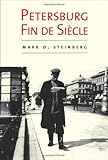Support H-Net | Buy Books Here | Help Support the NBN and NBN en Español on Patreon | Visit New Books Network en Español!
- African Studies
- African American Studies
- American Politics
- American Studies
- American South
- American West
- Asian American Studies
- Australian and New Zealand Studies
- British Studies
- Canadian Studies
- Caribbean Studies
- Central Asian Studies
- Chinese Studies
- East Asian Studies
- Eastern European Studies
- European Politics
- French Studies
- German Studies
- Iberian Studies
- India Studies
- Indian Ocean World
- Iranian Studies
- Irish Studies
- Israel Studies
- Italian Studies
- Japanese Studies
- Korean Studies
- Latino Studies
- Latin American Studies
- Mexican Studies
- Middle Eastern Studies
- Native American Studies
- Pacific Studies
- Polish Studies
- Russian and Eurasian Studies
- Southeast Asian Studies
- South Asian Studies
- Turkish Studies
- Ukrainian Studies
- Western European Studies
- World Affairs
- Animal Studies
- Anthropology
- Archaeology
- Business, Management, and Marketing
- Media
- Critical Theory
- Disability Studies
- Drugs, Addiction and Recovery
- Education
- Economics
- Finance
- Geography
- Gender Studies
- Genocide Studies
- Higher Education
- Human Rights
- Journalism
- Language
- Law
- LGBTQ+ Studies
- National Security
- Philanthropy
- Philosophy
- Policing, Incarceration, and Reform
- Political Science
- Politics & Polemics
- Public Policy
- Sex, Sexuality, and Sex Work
- Sociology
- Sound Studies
- Sports
- Urban Studies
- Big Ideas
- Celebration Studies
- Co-Authored
- Cover Story
- Historical Materialism
- History Ex Silo
- Interpretive Political and Social Science
- Invested Investor
- Landscape Architecture
- Late Antiquity
- Mormonism
- NBN Book of the Day
- NBN Seminar
- Postscript: Conversations on Politics and Political Science
- Practical History
- Preparing for Life After Grad School
- Psychology and Climate Change
- Syriac Studies
- The Chair: In The Room at the Fed
- New Books with Miranda Melcher

Apr 9, 2012
Understanding Russian Politics
Summary
Stephen White's Understanding Russian Politics (Cambridge University Press, 2011) begins simply enough: "Russia is no longer the Soviet Union." While this is a well-known fact, the details of Russia's postcommunist transition -- the emergence of a party system and presidential government, as well as the dismantling of the planned economy and construction of modern political communication -- have rarely been as consciously and seamlessly fit into the setting of Russia's immediate present. Stephen White's ambitious text tracks the most significant developments in Russia's post-Soviet formation, and more importantly plugs those events back into the framework of today, equipping readers with the context required for a deeper reading of contemporary Russian politics.
Understanding Russian Politics tackles all the biggest components of Russian statecraft and social transformation over the past twenty-five years. In my interview with Professor White, we discussed topics as current as President Medvedev's 2012 legal initiative to liberalize political party registration in Russia, as well as the role the previous winter's street demonstrations played in prompting such reforms offered by the Kremlin. In this context, White addressed the constitutional legacy of Yeltsin's super presidential state, and explained why Putin's economic policies have deviated from the extreme market liberalism of Russia in the early 1990s. Our conversation finished on the subject of Russian foreign policy and domestic interest groups, highlighting the roles that competing schools of thought play in policymaking today.



































































































